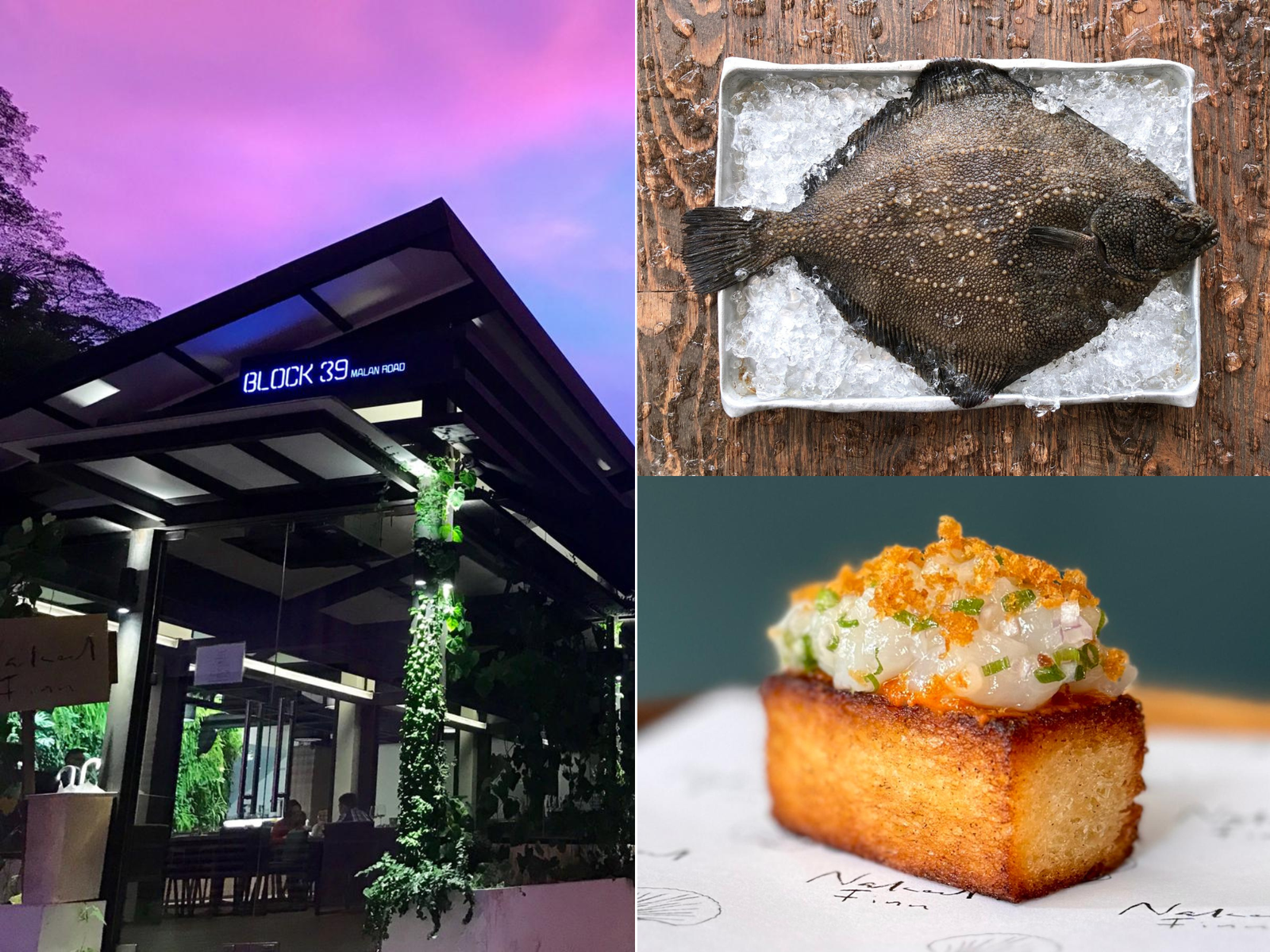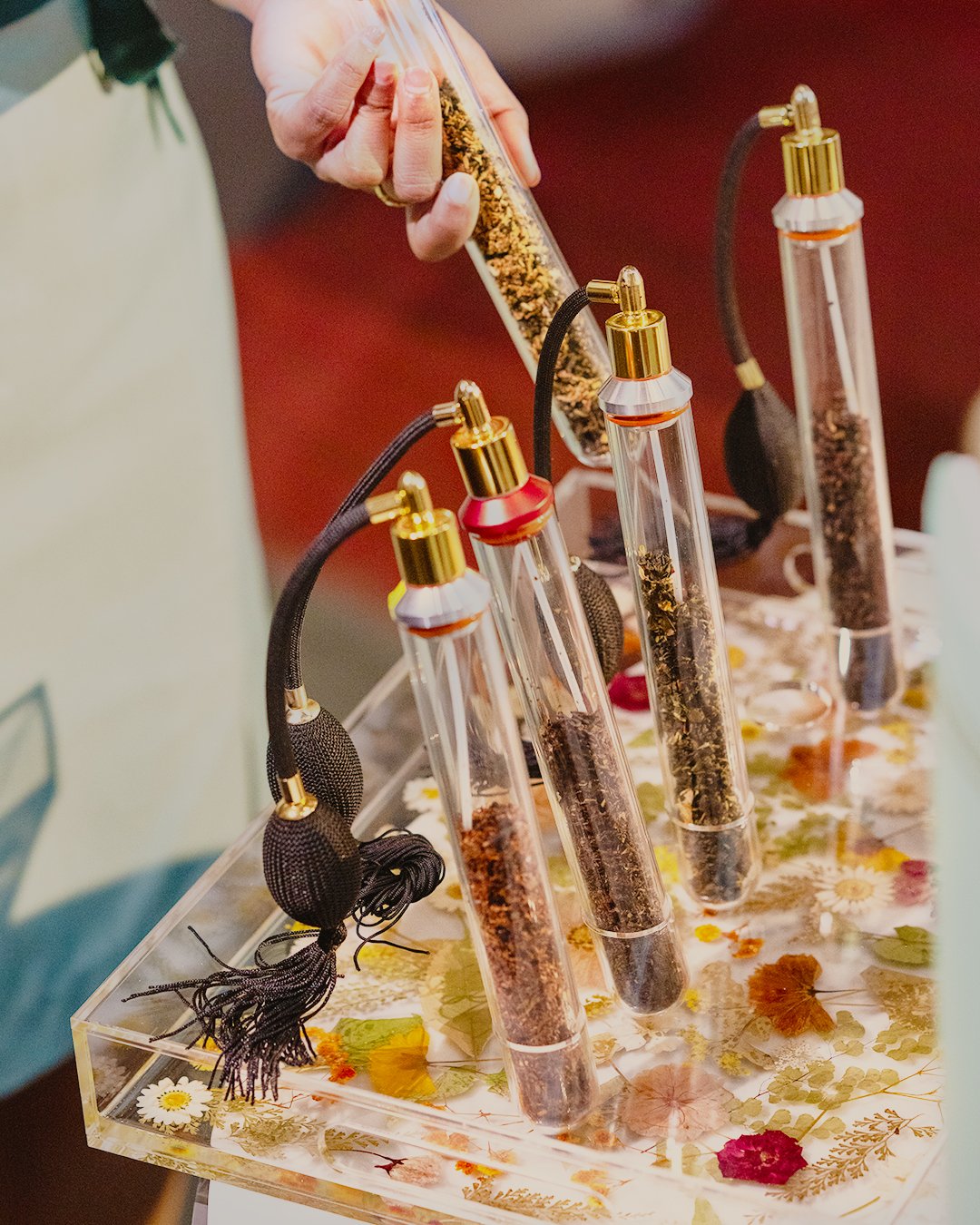Is this the swan song of Naked Finn? We sat down with Ken Loon of Naked Finn, who opened up about the work they’ve done to keep the 12-year-old seafood restaurant afloat.
It all started with an Instagram post by Ken Loon, the owner of Naked Finn, a seafood specialty restaurant in Singapore. In the post, Ken penned a heartfelt plea for support, asking patrons to spread the word about the restaurant, provide direct feedback for any issues, and consider the restaurant for celebratory events, as they continue to maintain their commitment to quality and consistency.
There’s something poignant about the post, especially in a climate where F&B businesses are closing left, right, and centre. It was soon flooded with likes and messages from customers, both old and new, promising a visit (or revisit). However, is this show of support enough?
According to this retail report from Knight Frank, 2,465 F&B businesses ceased operations in the first nine months of 2024. It’s hard to swallow, coming from a nation of people who love calling ourselves “foodies” – but it’s not surprising either, as an increasingly gloomy economic climate has people tightening their purse strings and opting for more affordable options.
We’ve already witnessed a wave of restaurant closures, including notable names like La Dame de Pic, Braci, Beni, and Ms Maria & Mr Singh, with others like Sommer and Voyage soon to follow. And this is just a glimpse—chains, eateries and hawker stalls are also feeling the strain.
Which brings us back to Ken’s post. Nestled within the serene, art-laden enclave of Gillman Barracks, Naked Finn quietly chugs on, and will be celebrating their 12 year anniversary in November 2024. Known for its curated seafood menu, this understated gem is where Ken brings his obsession with seafood to life. We sat down with him to uncover the story behind the post and explore his perspective on the ever-evolving restaurant industry in Singapore.
Anticipating the post-pandemic shift

Back in 2021, at the peak of the COVID-19 crisis, the F&B industry faced unprecedented challenges. “Once COVID ends, when we exit COVID, we’ll be in trouble,” Ken reflected. During the pandemic, dining out became one of the few available activities, leading to a surge in restaurant openings. However, this boom was unsustainable. Ken foresaw that post-pandemic, the market would be flooded with eateries, exacerbating issues like manpower shortages and diminishing customer enthusiasm for dining out in Singapore.
To counteract this, Naked Finn aimed to pivot from targeting a more affluent clientele to appealing to the mass market. “Our product wasn’t easily accessible to the mass market,” he explained. This shift was crucial as the economic landscape changed rapidly, with factors like extended flying miles and fluctuating currencies influencing dining behaviours. Naked Finn needed to refine its approach to remain relevant and appealing to a broader audience.
For the past two years, the focus has been on internal adjustments—aligning the team, simplifying the menu, and enhancing product quality.
The first thing to do is to maintain a stable and motivated team, especially during turbulent times when many others in the industry were closing down. Ken highlighted the critical role of team dynamics in a fast-paced environment like F&B. “In a very fast-paced environment like F&B, you need to make sure the team is willing to work for each other and able to achieve the end result,” he explained.
“We need to make sure that the products we put out are something people want to eat,” he stated. The transition from a complex, creative menu to more comforting and familiar offerings was a deliberate move to attract and retain customers in a saturated market.
Sustainability talks? How about action?
“We’ve experimented with more than 300 species of seafood,” Ken revealed. This extensive experimentation was driven by a commitment to sustainability, even though it’s not something they use as a marketing message.

An example is the Dungeness Crab featured in the menu (served in Chawanmushi or Whole Crab). After having experimented with 25 species of crabs, Ken’s preference is still the Dungeness crab, a high quality marine crab at a reasonable price point.
Although mud crab (estuarine) is the popular choice for both chili crab and black pepper crab in Singapore, the average meat yield percentage is lower than Dungeness crab, making mud crab more expensive than similarly sized Dungeness crab.
Coupled with the thinner shell and briny nuances of a marine crab, the Dungeness crab makes for better, easier eating, and thus the default choice for their crab dishes.
“You know, it tastes better than a king crab, but you pay so much for King Crab. It tastes much better than a mud crab, and yet, mud crab is more expensive. If you ask me the best crab to cook, I’ll take Dungeness over anything: thinner shell, meatier, higher yield percentage – incredible,” Ken enthused.
By embracing a diverse range of ingredients and exploring what could be done with existing seafood that people might not think about using, and respecting their unique qualities, Naked Finn enriches its culinary offerings without the excessive sustainability efforts flag-waving.
Ken also emphasised the importance of using every part of an ingredient, a practice inspired by Japanese culinary techniques. “If the animal dies for you, it should not be in vain,” he asserted. This approach not only reduces waste but also enhances the depth and authenticity of the dishes served.
Creativity and marketing in F&B

Beyond the immediate concerns of the restaurant, Ken’s reflections on the broader food scene came through strongly in our conversation. He discussed how the current climate demands a thoughtful approach, saying, “Creativity is not about being complex. Sometimes, creativity is using one single ingredient.” In an era when many chefs strive for complexity and innovation, Ken stands firm in the belief that simplicity and authenticity matter more.
Ken also eschewed conventional marketing agencies, choosing instead to handle all aspects of marketing in-house. This hands-on approach ensured that the messaging remained genuine and aligned with the brand’s values. However, Ken acknowledged that the sheer volume of content and competition on social media made it difficult to capture and retain customer attention.
One of the most contentious issues in the F&B sector is pricing. Ken shared insights into his pricing philosophy, balancing quality ingredients with affordability. “I always want to price it as low as I possibly can by watching my operating costs,” he stated. Despite efforts to offer value, customer perceptions often labelled Naked Finn as expensive. This disconnect arises from the relative nature of pricing—what is affordable for one may be prohibitive for another.
Addressing these perceptions required a delicate balance. Ken underscored the importance of educating customers about the quality and sourcing of ingredients. By maintaining transparency about ingredient quality and sourcing practices, he aims to justify its pricing structure and reinforce the value offered to customers.
Naked Finn to the future

The response to the post may be overwhelmingly positive, but the stark reality is that failure is a possibility if customer engagement did not improve. “It’s a very gloomy message that I put up, but within the gloomy tone, there’s hope,” he shared his mixed emotions.
Despite the challenges, Ken remains quietly confident in Naked Finn’s ability to recover. “We can only continue to put in the work that we are putting in, trying to make sure the products get better,” he affirmed.
“So why the post? Why now? Because we’ve really reached a point where whatever we can do internally as a company—from product to people—we’ve already completed what we set out to do over the last year.”
“Now the question is, will customers come back? And that post is basically to see… Are we still able to get new customers to come, and if they do, how long will that last?”
“That is really my last attempt to see where we are. If we don’t recover by the end of the year, then I think it’s quite pointless to continue.”
Naked Finn is located at 39 Malan Rd, Gillman Barracks, Singapore 109442. Reservations can be made here or by calling 6694 0807.
Opening hours: Tuesday to Saturday, 12pm to 3pm and 6pm to 10:30pm.



